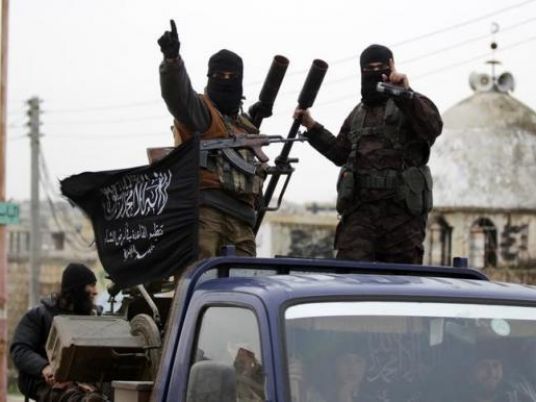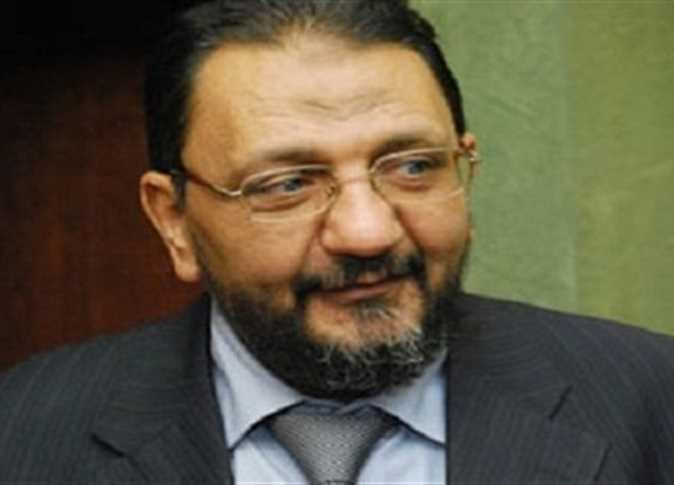John Kerry’s 24-hour visit to Egypt did not sit well with the country’s opposition forces, who claim the US Secretary of State’s position towards the Muslim Brotherhood is now clearer than ever, and criticize what they describe as interference in domestic affairs.
In meetings with President Mohamed Morsy, the foreign and defense ministers and head of the General Intelligence Services, Kerry emphasized the need for political participation and reaching a consensus among Egypt’s different factions. He underscored the importance of the upcoming parliamentary elections in light of the opposition’s decision to boycott.
“The best way to ensure human rights and strong political checks and balances in any democracy in Egypt, just like in the United States, is through the broadest possible political and economic participation,” Kerry said after a meeting with Egyptian Foreign Minister Kamel Amr. “We believe that being active and engaging in peaceful participation is essential to building strong communities and healthy democracies.”
In remarks published by the US Department of State, Kerry also said the upcoming parliamentary elections “are a particularly critical step in Egypt’s democratic transition,” arguably giving legitimacy to a process otherwise deemed illegitimate and undemocratic by the opposition.
Several major opposition groups, led by the National Salvation Front, have announced an electoral boycott, demanding more guarantees for transparent elections and the formation of a neutral government to supervise instead of Prime Minister Hesham Qandil’s Cabinet.
Khaled Daoud, spokesperson of the NSF, says that while Kerry’s visit was customary, the front denounces his statements regarding domestic matters.
“We are not happy with Kerry’s statements regarding the elections, we consider it interference in domestic issues,” Daoud says, “the US should be impartial and avoid picking one side over the other.”
While Kerry did not explicitly urge the opposition parties to reconsider their calls for boycott, he did imply that it is the only way forward if they wanted their voices heard.
Earlier this week, however, the US urged the NSF to reverse its position on boycotting the vote.
State Department spokesman Edgar Vasquez said the US was encouraging all Egyptian parties and potential candidates to compete, saying the election offered Egyptians an opportunity to have their voices heard.
Vasquez added that it was “critical” for Egyptian parties to participate so that Egypt’s citizens could pick representatives from a broad range of political positions.
NSF leading members Mohamed ElBaradei and Hamdeen Sabahi rejected invitations to meet Kerry during his visit to Cairo on Saturday, citing US pressure over their decision to boycott parliamentary elections.
Amr Moussa, on the other hand, agreed to the meeting, along with other opposition figures such as Ayman Nour.
In a 30-minute phone call, ElBaradei allegedly conveyed the front’s stance to Kerry, explaining that the opposition is adamant on boycotting the vote, according to Daoud.
In statements in Cairo on Saturday, published by the US State Department, Kerry was asked whether his communications with the opposition members had showed any signs of backtracking on the boycott.
“No, I heard very passionate people who are deeply committed to Egypt and to their version of the democracy that they fought for in their revolution. And I completely understand that. I wanted to hear from them. I explored their strategy and thoughts,” he replied.
Bassem Kamel, former MP and member of the Social Democratic Party, says that it has become clear that the US supports the Muslim Brotherhood’s regime, just like it did Mubarak’s.
“The picture is now complete,” Kamel says, also denouncing what he sees as the US getting involved in Egypt’s domestic affairs.
He explains that Kerry’s agenda was focused on the elections, attempting to pressure opposition forces to compete in the elections to give it a “democratic veneer.”
“The US has secured their interests with the Muslim Brotherhood and so they don’t want a real democracy,” Kamel says, “they don’t want a nationalist figure to run the country like Mohamed ElBaradei.”
Seeking to quash any concerns about US intervention, Kerry however reiterated that his visit to Egypt was merely to “listen.”
“And I emphasize again as strongly as I can, we’re not here to interfere. I’m here to listen,” he said after meetings with the foreign minister. “We’re not here to urge anybody to take one particular action or another.”
“Though we have a point of view, and certainly I will express that,” he added.
Kerry also discussed an impending International Monetary Fund loan to Egypt, saying that reaching an agreement on economic reforms to seal the US$4.8 billion deal was particularly critical. He said closing the IMF deal will signal US assistance as promised by President Barack Obama last year. The loan is also expected to unlock various pledges of funding and assistance from financial institutions and other countries.
Kerry met with Morsy at Ettehadiya Presidential Palace on Sunday, where they discussed the current situation in Egypt. He said the US would give Egypt $190 million to support the government's budget, according to Reuters.
Kerry urged Morsy to reach a consensus with opposition powers and restore their confidence in order for Egypt to pass through this stage and achieve stability and development, a presidential source told Anadolu news agency.
Hussein Gohar, head of foreign affairs of the Social Democrat Party, questions the nature of Kerry’s visit, asking whether he’s in Cairo to “play the middleman.”
“Are you [Kerry] here to find common ground or are you here to pressure the opposition?” Gohar asks rhetorically.
He explains that since the presidency is ignoring the street’s demands and only focusing on the elections, showing no intention to compromise, Kerry should be pressuring Morsy to concede, not the opposition.
Gohar believes that any attempts to thwart the NSF’s call for boycott will ultimately fail.
The NSF’s electoral commission spokesperson Mahmoud El-Alialy also condemns Kerry’s statements, saying that the Secretary of State is attempting to improve the US administration’s image to US taxpayers by “making them believe they support democracy, when actually they support a fascist regime.”
For their part, the Muslim Brotherhood hailed Kerry’s visit and attempt to resolve the political impasse.
Amr Darrag, Freedom and Justice Party (FJP) foreign relations committee chairman, describes Kerry’s visit to Egypt as a good step, according to statements published by Ikhwanweb.
“This is an important visit that we believe is motivated by US resolve to engage with the legitimate status quo in Egypt,” Darrag was quoted as saying.
Darrag added that Kerry’s call for opposition parties to contest the upcoming parliamentary elections is consistent with the US’ belief in the democratic process and its concern that Islamists may otherwise secure a sweeping majority in parliament.
On his first official visit in his capacity as Secretary of State, Kerry arrived to Cairo from Turkey on Saturday on the sixth stop of a nine-stop tour. He concluded visits in Britain, Germany and France and is set to visit Saudi Arabia, the United Arab Emirates and Qatar.
His visit comes during a turbulent time as clashes raged in the Nile Delta city of Mansoura, resulting in the death of a protester who was reportedly crushed by an armored police vehicle Saturday. Port Said was also marred by unrest as the city fights to maintain civil disobedience that began two weeks ago.
Activists in the Nile Delta city of Mansoura said a 35-year-old protester was killed when an armored police vehicle crushed him to death during anti-Morsi protests Saturday. And, in the restive Suez Canal city of Port Said, a police vehicle ran over five people after marching protesters refused to allow the car through.




